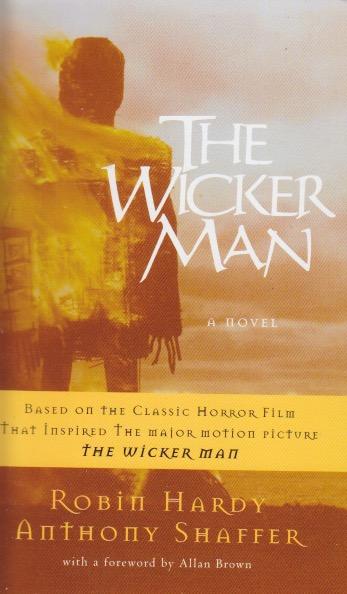
The Wicker Man (1973) is a cult classic. If it had had proper distribution and promotion it might’ve become a more mainstream hit when it was released. Instead it was a slow burn. Once it reached cult status controversy grew. The movie doesn’t acknowledge, but was clearly influenced by, the novel Ritual by David Pinner. I reviewed the novel earlier, and it isn’t particularly great. The movie changes so much that it maybe was “inspired by” rather than “based on” the novel. Several years later the director, Robin Hardy, decided to novelize the film. His The Wicker Man also credits Anthony Shaffer because a good deal of the dialog is lifted straight from the screenplay Shaffer wrote. But the novelization also changes things. That means there really is no novel that gives the full story of the film.
The creative process is never-ending. Anyone who’s had a story published knows the tinkering that goes on, even after it appears in print. The last word’s never truly that. It takes restraint to leave something alone. So Hardy wrote one of the more important characters out of his novel and wrote in another who seems to have very little connection to the story itself. I’m still not sure what the point of adding him might have been. Incidents that seem to be bracing for a sequel are present, and indeed Hardy wrote a spiritual successor that became a less impressive movie some years later. Sometimes you do get it right the first time around.
Not that the movie is perfect—none are—but it has held up considerably well, growing in stature over the years. A novelist, however, tends to have a deft touch that seems to be lacking here. There’s a great deal of telling instead of showing. Hardy’s Howie almost becomes a Mary Sue. Tying his love of birds into the plot of the novel would’ve been one such deft touch. Instead we have here a serviceable novel with much that’s familiar and even some that is strange and provocative. It does restore some of the famously edited footage from the first cut of the film. It tries to make Howie’s religious conviction clearer. Changing parts of a story comes with the territory of those who spin yarns. Hardy never really rose again to the heights he achieved in directing The Wicker Man. It’s no wonder, then, that he felt compelled to return to it in literary form.
